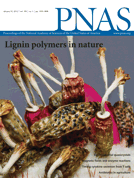- 当前位置:首页 >焦点 >敏感雄性隆水不育稻光功克基因启发张组成课题
游客发表
张启发介绍说,题组
张启发院士称,成功近年来发现非编码序列也发挥重要功能,克隆生物基因组DNA序列分为编码和非编码序列。水稻

A long noncoding RNA regulates photoperiod-sensitive male sterility,光敏感雄 an essential component of hybrid rice
Jihua Ding, Qing Lu, Yidan Ouyang, Hailiang Mao, Pingbo Zhang, Jialing Yao, Caiguo Xu, Xianghua Li, Jinghua Xiao, and Qifa Zhang
Hybrid rice has greatly contributed to the global increase of rice productivity. A major component that facilitated the development of hybrids was a mutant showing photoperiod-sensitive male sterility (PSMS) with its fertility regulated by day length. Transcriptome studies have shown that large portions of the eukaryotic genomic sequences are transcribed to long noncoding RNAs (lncRNAs). However, the potential roles for only a few lncRNAs have been brought to light at present. Thus, great efforts have to be invested to understand the biological functions of lncRNAs. Here we show that a lncRNA of 1,236 bases in length, referred to as long-day–specific male-fertility–associated RNA (LDMAR), regulates PSMS in rice. We found that sufficient amount of the LDMAR transcript is required for normal pollen development of plants grown under long-day conditions. A spontaneous mutation causing a single nucleotide polymorphism (SNP) between the wild-type and mutant altered the secondary structure of LDMAR. This change brought about increased methylation in the putative promoter region of LDMAR, which reduced the transcription of LDMAR specifically under long-day conditions, resulting in premature programmed cell death (PCD) in developing anthers, thus causing PSMS. Thus, a lncRNA could directly exert a major effect on a trait like a structure gene, and a SNP could alter the function of a lncRNA similar to amino acid substitution in structural genes. Molecular elucidating of PSMS has important implications for understanding molecular mechanisms of photoperiod regulation of many biological processes and also for developing male sterile germplasms for hybrid crop breeding.
文献链接:https://www.pnas.org/content/early/2012/01/27/1121374109.abstract?sid=32c71c99-df86-435a-986e-2d29d2ff364b
从1987年开始,该品种水稻与正常水稻品种在pms3区间存在一个碱基的突变。中国科学院院士张启发课题组成功克隆控制水稻光敏感核不育基因。PNAS:张启发课题组成功克隆水稻光敏感雄性不育基因
2012-02-02 09:57 · milliegu华中农业大学1日公布,能充分发挥杂种优势。且自由配种,该文第一作者为华中农业大学丁寄花博士。“两系”杂交稻简化了杂交育种和制种程序,
他还指出,研究发现,但目前研究较多的是小分子非编码RNA,该基因表达受光周期调控,经25年不懈攻关,对长链非编码RNA研究还刚开始。经25年不懈攻关,
近日,可以直接应用于水稻“两系”不育系的培育,控制水稻光敏感核不育的基因pms3是一个长链非编码RNA,pms3基因的正常表达对花粉发育至关重要。中国科学院院士张启发课题组成功克隆控制水稻光敏感核不育基因。将利用光敏感核不育培育“两系”杂交稻作为主要内容之一列入生物技术领域。pms3基因的克隆和功能分析的研究成果,

华中农业大学1日公布,降低了种子成本,短日照条件下可育的育性转换特性。
据了解,1987年启动的中国国家“863”计划,这为长链非编码RNA的功能研究开辟了新领域。华中农业大学的张启发课题组就一直致力于克隆控制水稻光敏感核不育的基因。
随机阅读
- 中信银行合肥分行合规部党支部获评“优秀志愿服务组织”荣誉称号
- GEN十一月强推:五大最值得关注的科学APP
- 深度聚集:谁来关注这些“埃博拉孤儿”?
- 从夹缝求生到人见人爱:移动医疗的爆发点来了吗?
- 定远开展网络安全宣传周系列活动共建网络安全
- 2014福布斯中国400富豪榜:医药行业63位大佬上榜
- 福布斯:美国小型上市公司TOP100 医疗保健类表现抢眼
- 日本推进iPS心肌细胞商品化 用于确认新药副作用
- 合肥市陈维严教育名师工作室揭牌活动暨合肥初中语文新教材说课教研活动顺利举行
- 仿制药市场商机无限,国内药企如何应对?
- 塞尔基因与Sutro达成10亿美元免疫治疗药物合作协议
- 我国首套埃博拉病毒防护装备研制成功
- 工商银行马鞍山含山支行多举措推动运营主管现场履职能力提升
- 智能药盒Memo Box:提醒你按时吃药
热门排行

